
Battling the Drug Crisis in South LA
Whether they’re street drugs or psychiatric schoolroom drugs, retired National Football League star Reggie Berry says, “Neighborhood, beware.”
When he retired from the National Football League in 1975, star defensive back Reggie Berry wanted to do something with his life to help improve conditions.
He studied to become a teacher and, over the next several years, worked as a tutor and mentor in federally funded and operated programs to help inner-city children. In 1989, using personal funds, he founded the Los Angeles-based “Goals for Life” program, which helps youth realize their abilities, rise above barriers and achieve their dreams in life.
Then, as today, crime, drugs and illiteracy were the scourges of inner-city communities across the country.
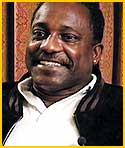 In a recent Freedom interview, Berry zeroed in on the subject of drugs — of both the street and prescription variety — which have dramatically affected the black community. And he gave a glimpse of the actions he is taking through the “Goals for Life” program to bring effective change.
In a recent Freedom interview, Berry zeroed in on the subject of drugs — of both the street and prescription variety — which have dramatically affected the black community. And he gave a glimpse of the actions he is taking through the “Goals for Life” program to bring effective change.
FREEDOM: You have long cautioned that cocaine is highly destructive not only to today’s youth, but also to the culture as a whole. What makes you say this?
REGGIE: It practically wiped out the black middle class in the ‘80s.
Cocaine isn’t brought into the community by the black community. Someone else is bringing it in there. And those who have leisure time are the ones who are using it. The effect it’s had on the society is this: you have two million people in jail, and one out of every three black males is involved in the criminal justice system.
In the ‘70s a large middle class developed because they were allowed to go to school through programs like affirmative action and different programs for blacks to go to college. In the ‘80s, with the advent of cocaine in the community, it had a major adverse impact on the middle class in the black community.
FREEDOM: How would things have been different had cocaine not been introduced?
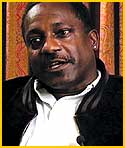 REGGIE: Things would have been different in a large way: You wouldn’t have so many people in jail; you wouldn’t have so many kids running around not knowing right from wrong; you wouldn’t have such a poor educational system because it would have been easier for kids to learn in an atmosphere more conducive to learning; you would have had better teachers in the schools. There are so many things that would have been better if we hadn’t had cocaine involved in the community.
REGGIE: Things would have been different in a large way: You wouldn’t have so many people in jail; you wouldn’t have so many kids running around not knowing right from wrong; you wouldn’t have such a poor educational system because it would have been easier for kids to learn in an atmosphere more conducive to learning; you would have had better teachers in the schools. There are so many things that would have been better if we hadn’t had cocaine involved in the community.
When kids go to jail, everybody makes money. They pay more money for kids to go to jail than they do for them to go to school. The judges make money. The lawyers make money. The system is totally fed when they put a kid in jail.
They used to say that one in every three people in California had jobs based on war. Now one in every three people in California have jobs based on putting kids in jail. Kids don’t vote.
...........................
“They used to say that one in every three people in California had jobs based on war. Now one in every three people in California have jobs based on putting kids in jail.” — Reggie Berry
...........................
|
|
FREEDOM: What do you see as your role in changing that situation?
REGGIE: As a former NFL player, I know that my responsibility is to tell kids that not everybody can be a pro football player. But everybody can be a good citizen.
To be a pro football player, you have to go through certain changes and one of them is to stay off drugs. We want to encourage kids and get them to understand that if they want to reach any goal that they want to achieve, they have to stay off drugs. They have to follow a certain course.
FREEDOM: Most people are familiar with the problems of young people getting into street drugs, but you have also encountered the problem of kids taking legal drugs.
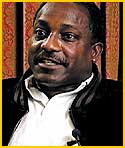 REGGIE: Yes, I deal with kids who are at risk all the time. I’ve had kids that literally could not sit still. They have big problems: their parents put them on Ritalin, they’re asleep in class, they’re totally drugged. I talked to a doctor who told me that if you put kids on calcium and magnesium and take them off Ritalin, it will have a better effect on them.
REGGIE: Yes, I deal with kids who are at risk all the time. I’ve had kids that literally could not sit still. They have big problems: their parents put them on Ritalin, they’re asleep in class, they’re totally drugged. I talked to a doctor who told me that if you put kids on calcium and magnesium and take them off Ritalin, it will have a better effect on them.
And parents have done that, and they’ve come back to me and told me they’ve had extremely positive results. Every time I see them, they thank me.
FREEDOM: But you see the drug problem as much broader than that.
REGGIE: We work in the juvenile facilities with kids who do not have parents. We tell kids to stay off drugs because of what drugs do to them. When we talk about drugs, we don’t just talk about marijuana and cocaine, we talk about all the other drugs that affect their lives from day to day — Prozac, Ritalin, all the pharmaceutical drugs.
For more information on Reggie Berry’s “Goals for Life” program, contact him at (562) 698-1501.
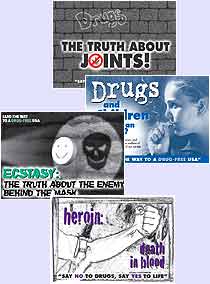 Know and Use the Facts
Know and Use the Facts
Legalization, decriminalization, “harm minimization” .... today’s political discussion about drugs has no shortage of strategies and clichés. Some have given up altogether on ending the drug problem, and seek only ways to minimize the harm drugs leave in their wake. While care must be given to addicts and to the drug-related decline of our communities, the only long-term answer is education and prevention. Only then can we have any chance of guaranteeing that our children, and their children, will be safe.
As a public service, Lead the Way to a Drug-Free USA distributes highly informative booklets that can be used by anyone to combat drugs with the most effective ammunition there is: facts.
Heroin: The most deadly and addictive drug: its history, how it affects the addict and why.
Ecstasy: The “new” drug is not new at all, its dangers have been documented for decades.
Cannabis: Propaganda that marijuana is “not as bad” as other drugs is false.
Drugs and children: A helpful guide for informing children about drugs — for parents, teachers and youth workers
CONTACT: Lead the Way to a Drug-Free USA at (323) 953-3200
Sponsored by the Church of Scientology
|
|
|



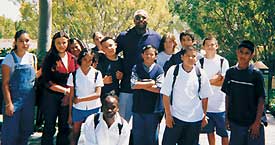

 In a recent Freedom interview, Berry zeroed in on the subject of drugs — of both the street and prescription variety — which have dramatically affected the black community. And he gave a glimpse of the actions he is taking through the “Goals for Life” program to bring effective change.
In a recent Freedom interview, Berry zeroed in on the subject of drugs — of both the street and prescription variety — which have dramatically affected the black community. And he gave a glimpse of the actions he is taking through the “Goals for Life” program to bring effective change.
 REGGIE: Things would have been different in a large way: You wouldn’t have so many people in jail; you wouldn’t have so many kids running around not knowing right from wrong; you wouldn’t have such a poor educational system because it would have been easier for kids to learn in an atmosphere more conducive to learning; you would have had better teachers in the schools. There are so many things that would have been better if we hadn’t had cocaine involved in the community.
REGGIE: Things would have been different in a large way: You wouldn’t have so many people in jail; you wouldn’t have so many kids running around not knowing right from wrong; you wouldn’t have such a poor educational system because it would have been easier for kids to learn in an atmosphere more conducive to learning; you would have had better teachers in the schools. There are so many things that would have been better if we hadn’t had cocaine involved in the community.
 REGGIE: Yes, I deal with kids who are at risk all the time. I’ve had kids that literally could not sit still. They have big problems: their parents put them on Ritalin, they’re asleep in class, they’re totally drugged. I talked to a doctor who told me that if you put kids on calcium and magnesium and take them off Ritalin, it will have a better effect on them.
REGGIE: Yes, I deal with kids who are at risk all the time. I’ve had kids that literally could not sit still. They have big problems: their parents put them on Ritalin, they’re asleep in class, they’re totally drugged. I talked to a doctor who told me that if you put kids on calcium and magnesium and take them off Ritalin, it will have a better effect on them.
 Know and Use the Facts
Know and Use the Facts